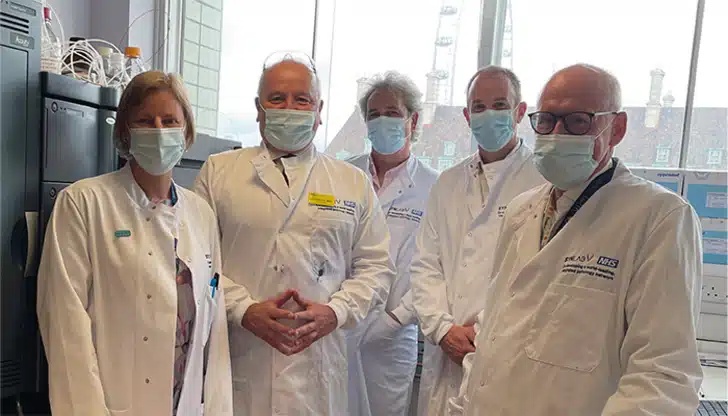Operation Moonshot featured theanalyticalscientist.com
Below is a quick overview of the full article.
In the summer of 2020, the UK’s Department of Health and Social Care (DHSC) launched Operation Moonshot to support innovative SARS-CoV-2 diagnostic approaches. This collaboration between academia, industry, and the NHS aimed to develop an LC-MS/MS-based test for detecting low levels of SARS-CoV-2 tryptic peptides. Surprisingly, the project succeeded in creating a viable test within just five months.
Rachel Carling, Director of Newborn Screening and Clinical Lead for Biomedical Sciences at Synnovis, who led the labs in this initiative, shares key lessons from Operation Moonshot.
- Collaboration was Crucial: Operation Moonshot’s success relied on the synergy between academia, industry, and the NHS. Academia rapidly developed a specialized mass spectrometry method, industry provided advanced technology and support, and the NHS optimized and validated the method for UKAS accreditation.
- Choosing Mass Spec: Despite initial concerns about mass spectrometry’s sensitivity compared to PCR, the team favored it for its ability to detect SARS-CoV-2 peptides while maintaining high throughput and adaptability to handle variants.
- Overcoming Challenges: Balancing sensitivity and speed during analysis was a challenge, but the introduction of immunocapture reagents and the Andrew+ pipetting robot streamlined the process.
- Key Lessons: Operation Moonshot emphasized the value of collaboration, advanced technology, automation, and dedicated development time. Post-pandemic, the “triplex” approach involving academia, industry, and the NHS should continue. Additionally, investing in mass spectrometry and pre-analysis within the NHS offers multiple benefits.
- Preparing for Future Pandemics: The experience gained from Operation Moonshot has improved preparedness for future pandemics. Lessons learned include better management of rapidly changing plans and effective communication.
- The Future of Clinical Testing: Operation Moonshot has expanded the possibilities of routine clinical labs, showcasing mass spectrometry’s potential for peptide analysis. This legacy holds promise for numerous clinical testing advancements.
In conclusion, Operation Moonshot’s swift development of an LC-MS/MS-based COVID-19 test underscores the power of collaboration, mass spectrometry’s potential in diagnostics, and the importance of healthcare infrastructure investment for pandemic preparedness. These lessons may shape the future of clinical testing and global health readiness.


